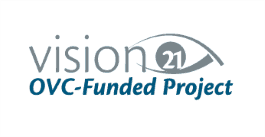
- This event has passed.
Perceptions of Justice for Domestic Violence Survivors: Recent Findings and Implications for Practice
March 26, 2024 @ 2:00 pm - 3:00 pm
FreeIn this Center for Victim Research webinar, researchers from the Urban Institute will present findings from a recent study on the perceptions of justice, accountability, safety, and healing – including the effectiveness of traditional responses and restorative practices – held by diverse survivors of domestic violence from traditionally underserved groups. The study also examined the extent to which there is alignment between survivors’ and practitioners’ perspectives of justice. This webinar will offer insights from both the researchers and their practitioner partners about the gaps in knowledge this study fills and the recommendations that emerged for direct service providers, legal system professionals, alternative justice programs, policymakers, and funders.
ASL Interpretation will be provided.
Presenters:
Malore Dusenbery is a principal policy associate in the Urban Institute’s Justice Policy Center, focusing on victimization generally and gender-based violence in particular. Her research, evaluation, and technical assistance aim to improve victim services, increase access to justice, and foster collaboration between researchers and practitioners. She also serves as associate director of the national Center for Victim Research.
Claudia Nmai is a research assistant in the Urban Institute’s Justice Policy Center. She works on research and policy projects related to victimization, victim safety, and responses to harm. Before joining Urban, Nmai held research positions within the sociology department at Stanford University and interned at the Stanford Center for Racial Justice.
Orchid Pusey is the executive director of Asian Women’s Shelter, which provides a range of culturally-grounded violence intervention and prevention programs, as well as trainings and technical assistance, systems advocacy, and collaborative leadership. She founded AWS’s 40 Hour Community Interpretation Training Institute (CITI) and Multi-Lingual Digital Storytelling Project. Orchid specializes in trauma-informed organizational development and advocacy; violence prevention in LGBTQ communities; and community-based participatory research and evaluation.

FOLLOW US